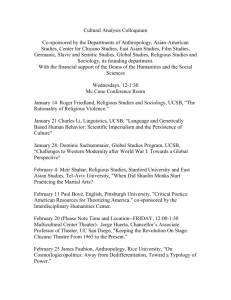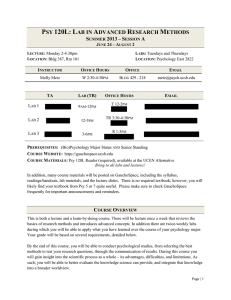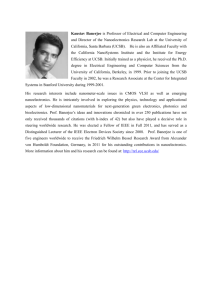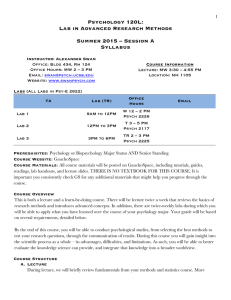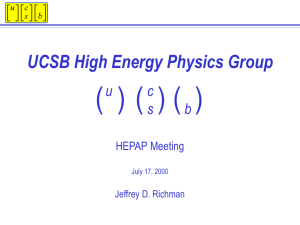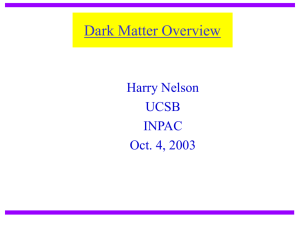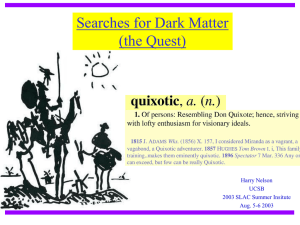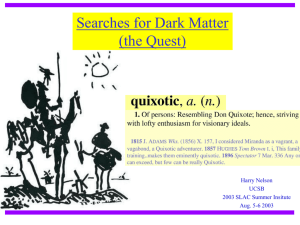A History of Computing - Sy
advertisement
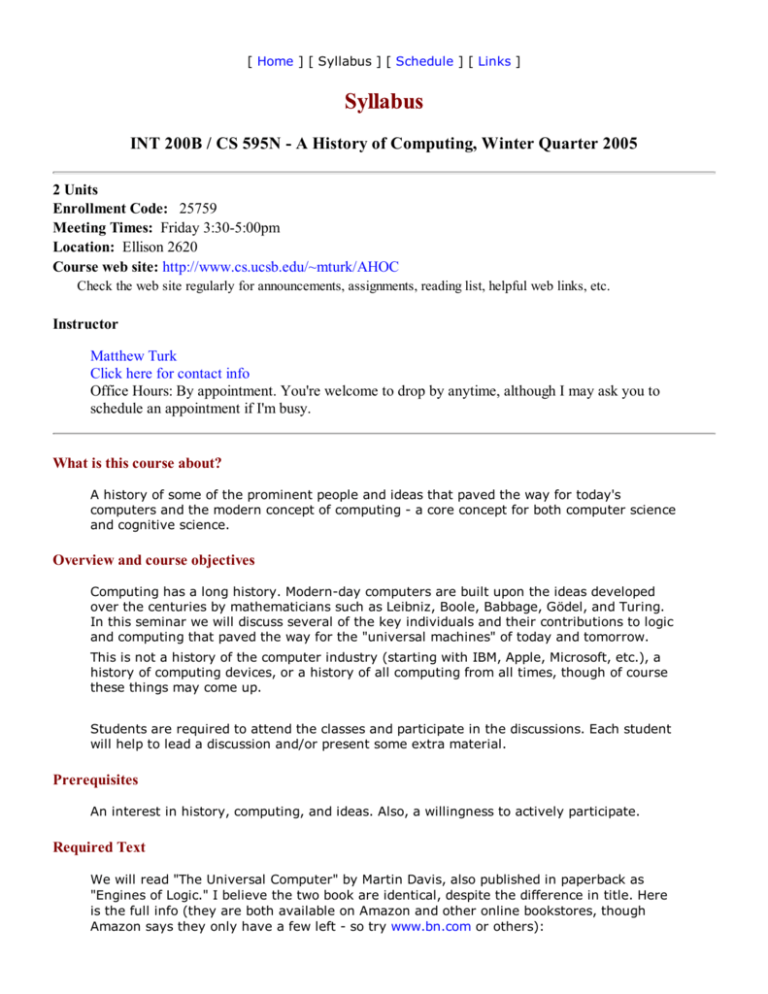
[ Home ] [ Syllabus ] [ Schedule ] [ Links ] INT 200B / CS 595N - A History of Computing, Winter Quarter 2005 2 Units Enrollment Code: 25759 Meeting Times: Friday 3:30-5:00pm Location: Ellison 2620 Course web site: http://www.cs.ucsb.edu/~mturk/AHOC Check the web site regularly for announcements, assignments, reading list, helpful web links, etc. Instructor Matthew Turk Click here for contact info Office Hours: By appointment. You're welcome to drop by anytime, although I may ask you to schedule an appointment if I'm busy. What is this course about? A history of some of the prominent people and ideas that paved the way for today's computers and the modern concept of computing - a core concept for both computer science and cognitive science. Overview and course objectives Computing has a long history. Modern-day computers are built upon the ideas developed over the centuries by mathematicians such as Leibniz, Boole, Babbage, Gödel, and Turing. In this seminar we will discuss several of the key individuals and their contributions to logic and computing that paved the way for the "universal machines" of today and tomorrow. This is not a history of the computer industry (starting with IBM, Apple, Microsoft, etc.), a history of computing devices, or a history of all computing from all times, though of course these things may come up. Students are required to attend the classes and participate in the discussions. Each student will help to lead a discussion and/or present some extra material. Prerequisites An interest in history, computing, and ideas. Also, a willingness to actively participate. Required Text We will read "The Universal Computer" by Martin Davis, also published in paperback as "Engines of Logic." I believe the two book are identical, despite the difference in title. Here is the full info (they are both available on Amazon and other online bookstores, though Amazon says they only have a few left - so try www.bn.com or others): The Universal Computer by Martin Davis W.W. Norton & Company ISBN: 0393047857 October 2000 Engines of Logic by Martin Davis Paperback W.W. Norton & Company ISBN: 0393322297 September 2001 Here are a couple reviews of "The Universal Computer" - #1, #2. There will also be extra articles assigned to read. Grading Grades are pass/fail, based on class participation and/or presentations. Final Exam No final exam. Policy on Academic Integrity The university, the department, and this instructor all take the issue of academic integrity very seriously. A university requires an atmosphere of mutual trust and respect. While collaboration is an integral part of many scholarly activities, it is not always appropriate in a course, and it is never appropriate unless due credit is given to all participants in the collaboration. This goes for both ideas and programming or other work. For some views on academic integrity at UCSB see: http://www.hep.ucsb.edu/people/hnn/conduct/acad_cond.html http://www.hep.ucsb.edu/people/hnn/conduct/cam_reg_stud_a.html http://www.kiosk.ucsb.edu/AcademicServices/cheating.asp Summary: Academic integrity is absolutely required - dishonesty (cheating, plagiarism, etc.) benefits no one and will not be tolerated! There will be much collaboration in this course, but be sure you understand when it is appropriate to collaborate and when it is not. If in doubt, ask the instructor. Students with Disabilities If you are a student with a disability and would like to discuss special academic accommodations, please contact the instructor. In addition, students with temporary or permanent disabilities are referred to the Disabled Students Program (DSP) at UCSB. DSP will arrange for special services when appropriate (e.g., facilitation of access, note takers, readers, sign language interpreters). Please note that it is the student's responsibility to communicate his or her special needs to the instructor, along with a letter of verification from DSP. Notes Attendance is expected, since class participation is part of your grade. Please feel welcome to give feedback to the instructor regarding the course material, pace, assignments... whatever you wish. Don't just stew about it - let me know! Cell phone policy - If it rings, I get to answer it. Back to home
